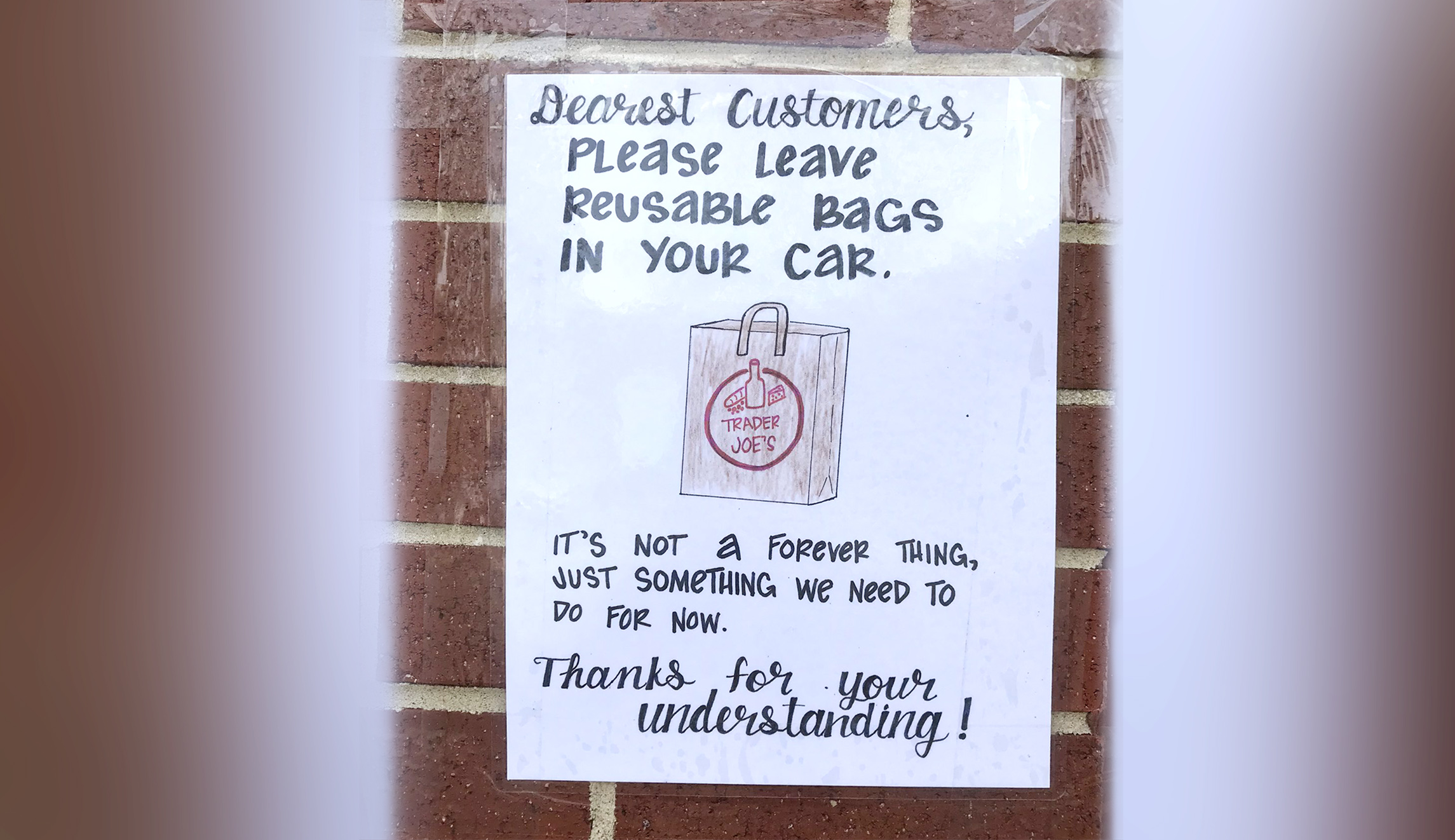We are making many, many sacrifices to slow the spread of the novel coronavirus. We have canceled school, canceled youth baseball, canceled church services, closed restaurants, closed libraries, and banned bars.
Education, livelihood, way of life, spiritual life, pastimes, fitness, and mental health are all being subordinated in order to stop the spread of the virus.
But pet environmentalist nanny-statism? That is sacrosanct, apparently. That’s something our government leaders are willing to sacrifice for. Specifically, they’re willing to sacrifice the safety of grocery workers.
Grocery store employees are among the most threatened by the coronavirus (far behind healthcare workers, of course), and one thing that scares them is handling customers’ reusable grocery bags.
That’s why unions representing grocery workers, including local chapters of the United Food and Commercial Workers, are lobbying to end the bag tax.
“Clerks and baggers are directly in harm’s way by having to handle hundreds of reusable shopping bags in an average shift,” Chicago’s local UFCW chapter argued. The union called on Chicago to suspend the city’s tax on plastic bags.
Mayor Lori Lightfoot said no. Local news radio station WBBM reported: “Mayor Lightfoot reacted coolly to the idea of waiving the bag tax. She said supermarkets seem to be providing adequate sanitation safeguards at stores.”
“We don’t want to take a retreat from something that is a serious environmental problem,” Lightfoot said.
It’s a similar story in my own county, Montgomery, in Maryland.
Back in 2011, MoCo launched its “Bring Your Bag” campaign and passed a five-cent tax on all plastic bags at grocery stores and other retailers.
When grocery workers started lobbying this spring for a temporary suspension in the tax, county councilman Will Jawando introduced a bill to do just that. As long as some grocery stores were banning reusable bags, and as long as there was a real health threat from reusable bags, let’s stop taxing people for using plastic bags.

After all, the stated purpose of the tax was not to raise revenue, but to encourage the use of reusable shopping bags. “Montgomery County hopes we don’t collect any money from the Bag Charge,” the county stated in a 2011 document. But encouraging reusable bags is no longer desirable if we’re trying to stop the spread of the virus. So the tax created to encourage those bags should be suspended.
Not so fast. Local environmentalists complained. Councilman Jawando spoke with Sierra Club and withdrew his legislation. Instead, he offered an “alternative solution” to the problem of reusable bags threatening grocery store workers.
That solution: Keep encouraging reusable bags, but “washing them between use, customers packing their own reusable bags at check out and frequently cleaning surfaces in baggage areas.”
So my county’s government wants to keep encouraging an activity that it agrees may be a threat of infection, but says, in effect, we can mitigate the harm by asking everyone involved to be really responsible.
Maryland officials don’t approach the rest of the coronavirus fight this way. They don’t say “eat at restaurants, but just space the tables, and clean everything more.” They don’t say “play tennis, but sanitize your hands between serves and wear masks.” They don’t even say “play tennis, but only with members of your household.” And they definitely don’t say “have church, but make it brief, no touching, and have only 20% capacity.”
No. On these restrictions that affect our way of life, our governments are imposing blanket bans. When it comes to their pet policies, though, they are trying to be very flexible and then bear the risks.
